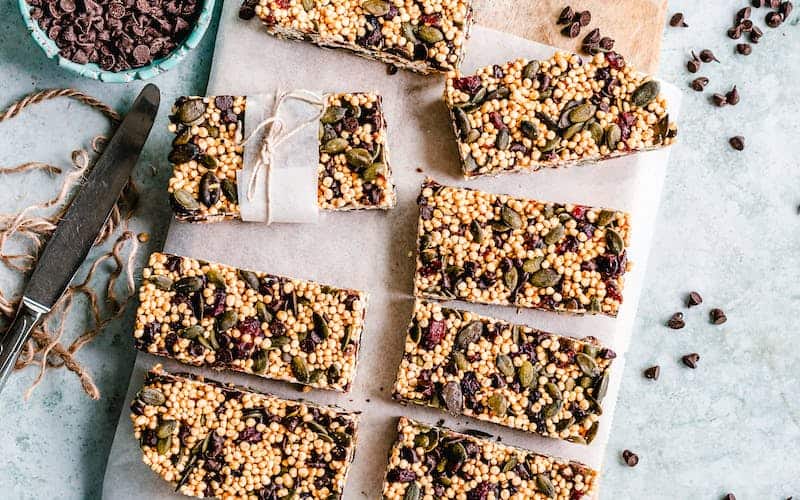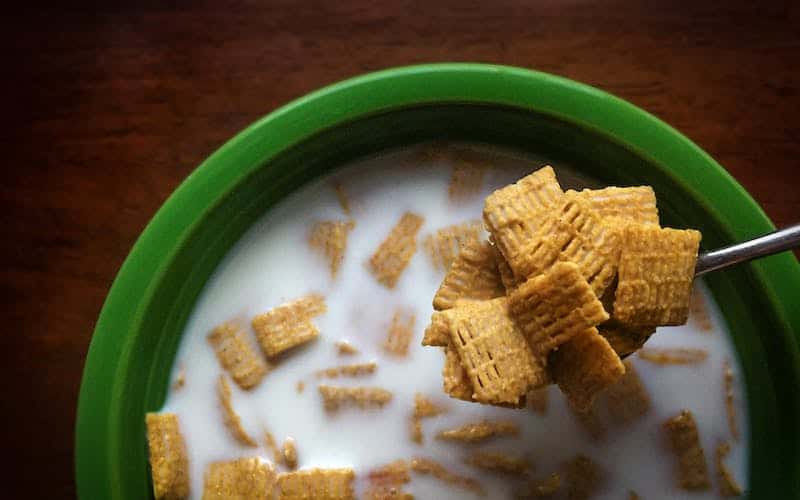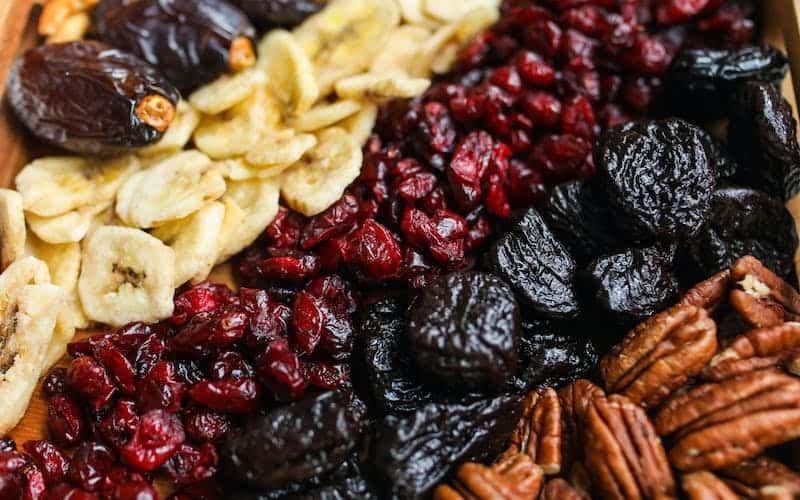Staying in a hotel can be convenient, but eating out for every meal can get expensive. Bringing your own food from home is a great way to save money and enjoy your favorite snacks even when traveling.
If you’re short on time, here’s a quick answer: Pack non-perishable and ready-to-eat items like granola bars, nuts, crackers, peanut butter, cereal, powdered milk, oatmeal, trail mix, and protein bars. Bring a small cooler for perishable drinks, yogurt, cheese, and fruit. A mini-fridge in your room will keep these cold. Reheat food using the in-room coffee maker, microwave, or water kettle.
In this comprehensive guide, we’ll walk you through everything you need to know about bringing food to hotels, from logistics to specific item recommendations.
Check Hotel Policies on Outside Food
Before you start packing your favorite snacks and meals, it’s important to check the hotel’s policies regarding outside food. While many hotels allow guests to bring their own food, some may have restrictions or charge additional fees.
Review any fees or restrictions
Take a few minutes to review the hotel’s website or call their front desk to inquire about any fees or restrictions related to outside food. Some hotels may charge a small fee for bringing in outside food, especially if you plan on using hotel facilities such as the dining area or poolside tables.
Additionally, certain hotels may have restrictions on certain types of food, such as strong-smelling or messy items.

Ask about accessing in-room appliances
If you plan on bringing perishable items or want to heat up meals in your room, it’s important to ask the hotel about the availability of in-room appliances.
Some hotels provide microwaves, mini-fridges, or even small kitchenettes in their rooms, allowing guests to store and prepare their own food. Knowing if these amenities are available can help you plan your meals accordingly and save money on dining out.
While it’s always a good idea to check with the hotel directly, you can also refer to websites such as Booking.com or TripAdvisor.com for reviews and information from previous guests. These websites often provide insights into hotel policies and amenities, giving you a better idea of what to expect.
Choose Foods That Don’t Require Refrigeration
When packing food for your hotel stay, it’s important to choose items that don’t require refrigeration. This will ensure that your food stays safe to eat and doesn’t spoil during your time away from home. Here are some tips to help you select the right foods:
Stick to non-perishables
Non-perishable foods are a great option for hotel stays because they can be stored at room temperature without spoiling. These items typically have a long shelf life and are not easily affected by temperature changes.
Some examples of non-perishable foods include canned goods, dried fruits and nuts, granola bars, and packaged snacks. These foods are not only convenient but also provide a good source of energy to keep you going throughout the day.

Prioritize ready-to-eat items
Ready-to-eat foods are ideal for hotel stays as they eliminate the need for cooking or heating. These items can be enjoyed straight from the package, saving you time and effort.
Some examples of ready-to-eat foods include pre-packaged salads, sandwiches, jerky, and individual servings of yogurt or pudding. These options are not only convenient but also offer a variety of flavors and textures to satisfy your cravings.
Consider shelf-stable milk and juices
If you prefer to have milk or juice during your hotel stay, consider opting for shelf-stable varieties. These products are pasteurized and packaged in a way that allows them to be stored without refrigeration until opened.
Shelf-stable milk and juices are available in individual servings or larger cartons, making them a convenient and refreshing choice. Just remember to check the expiration date before consuming to ensure freshness.
When selecting foods that don’t require refrigeration, it’s important to read labels and check for any specific storage instructions.
Additionally, be mindful of any dietary restrictions or allergies you may have when choosing your food items. By following these guidelines, you can ensure that you have a safe and enjoyable dining experience during your hotel stay.
Pack Food in Reusable Containers
When bringing food to a hotel, it’s important to consider the convenience and sustainability of your packaging. Using reusable containers not only reduces waste but also keeps your food fresh and secure during your trip. Here are some tips on how to pack food in reusable containers:
Use resealable plastic containers
Resealable plastic containers are a great option for packing snacks and smaller food items. These containers are lightweight, easy to clean, and come in various sizes.
They are also leak-proof, ensuring that your food stays fresh and doesn’t spill in your bag. Look for BPA-free containers for a healthier and eco-friendly choice.
Bring reusable water bottles
Staying hydrated is essential, especially when traveling. Instead of buying single-use plastic bottles, bring your own reusable water bottle.
There are many options available, from stainless steel to glass bottles, that are durable and easy to refill. Not only does this help reduce plastic waste, but it also saves you money in the long run.
Transport hot beverages in a thermos
For those who enjoy a hot cup of coffee or tea, a thermos is a must-have item. A thermos will keep your beverages hot for hours, allowing you to enjoy them at your convenience. Whether you prefer a sleek stainless steel thermos or a colorful insulated one, you can find a variety of options to suit your style and needs.
Packing food in reusable containers not only benefits the environment but also offers convenience and cost savings. By investing in reusable containers, you can enjoy your favorite snacks and drinks while minimizing waste and promoting sustainability.

Make Use of In-Room Appliances
When it comes to bringing food to a hotel, it’s important to make the most of the in-room appliances available to you. These appliances can provide you with convenience and help you save money during your stay.
Let’s explore some ways you can utilize these appliances to enhance your dining experience.
Utilize the mini-fridge
One of the most useful appliances in a hotel room is the mini-fridge. This compact fridge allows you to store perishable items and keep them fresh throughout your stay. You can bring fruits, vegetables, yogurt, cheese, and other snacks that require refrigeration.
This way, you can have healthy and fresh food options readily available in your room. Don’t forget to check the temperature settings of the fridge to ensure that your food stays at the right temperature.
Reheat food with the coffee maker
Believe it or not, your hotel room’s coffee maker can serve as a multipurpose appliance. Besides brewing your morning cup of joe, it can also be used for reheating certain food items. If you have leftovers from a meal or want to enjoy a warm snack, you can use the coffee maker to heat them up.
Simply place your food in a heat-resistant container, such as a microwave-safe bowl, and put it on the coffee maker’s warming plate. This hack can be especially handy if your room doesn’t have a microwave.
Cook simple meals in the microwave
Many hotel rooms are equipped with a microwave, which opens up a world of possibilities when it comes to preparing your own meals. While you may not be able to cook elaborate dishes, you can easily whip up simple meals using this appliance.
Consider bringing microwave-friendly meals like instant noodles, oatmeal, or even pre-packaged microwaveable dinners. You can also heat up pre-cooked meals you brought from home or warm up leftovers. Just be sure to follow the instructions on the packaging and use microwave-safe containers.
By making use of the in-room appliances, you can enjoy a variety of meals and snacks during your hotel stay. This not only allows you to have control over the quality and type of food you consume but also helps you save money on dining out.
So, don’t forget to pack some perishable items, heat-resistant containers, and microwave-friendly meals to make the most of your in-room appliances!
Best Foods to Bring to a Hotel
Breakfast foods like oatmeal, cereal, and bars
When it comes to breakfast, convenience is key. Bringing along items like oatmeal packets, cereal boxes, and breakfast bars can save you time and money. These options are easy to pack and require minimal preparation. Plus, they provide a great source of energy to start your day off right.

Sandwich ingredients and crackers
If you’re looking for a quick and easy lunch option, packing sandwich ingredients and crackers is a smart choice.
You can bring deli meats, cheese slices, and condiments to assemble delicious sandwiches in your hotel room. Don’t forget to pack some crackers to go along with your sandwich for an extra crunch!
Canned tuna, chicken, or salmon
Canned protein options like tuna, chicken, or salmon are versatile and can be used in various meals.
They are not only packed with protein, but they also have a long shelf life, making them perfect for traveling. You can use them to make sandwiches, salads, or even pasta dishes.
Fruit and vegetables
Adding fruits and vegetables to your hotel food stash is a great way to ensure you’re getting your recommended daily intake of vitamins and minerals.
Easy-to-pack options include apples, bananas, baby carrots, and cherry tomatoes. These snacks are not only healthy but also refreshing.
Cheese, yogurt, hummus, and nut butter
If you’re a fan of dairy and spreads, consider bringing along some cheese, yogurt, hummus, or nut butter.
These items can be enjoyed on their own or paired with fruits, crackers, or bread. They provide a good source of protein and healthy fats, keeping you satisfied throughout the day.
Chips, pretzels, granola, and nuts
No hotel snack stash is complete without some crunchy snacks.
Packing chips, pretzels, granola, and nuts can satisfy your cravings for something salty or sweet. These snacks are great for enjoying while watching TV or as a quick pick-me-up between meals.
Dried fruit and trail mix
If you’re looking for a healthy and portable snack, dried fruit and trail mix are excellent choices.
They are packed with nutrients and are easy to carry around. Plus, they make for a great on-the-go snack when you’re exploring your destination.

Coffee, tea bags, cocoa powder, and powdered creamer
For all the coffee and tea lovers out there, don’t forget to pack your favorite beverages. Bring along some coffee, tea bags, cocoa powder, and powdered creamer to enjoy a warm cup of your favorite drink in the comfort of your hotel room. It’s a great way to start or end your day on a cozy note.
Remember, when it comes to bringing food to a hotel, it’s important to be mindful of any hotel policies or restrictions. Some hotels may have limitations on cooking appliances or food storage.
Additionally, be considerate of other guests and keep any perishable items properly refrigerated. With a little planning and creativity, you can enjoy delicious meals and snacks during your hotel stay without breaking the bank.
Conclusion
Bringing your own food is a smart way to save money on meals when staying at a hotel. With some planning and smart food choices, you can eat healthy, home-cooked food without breaking the bank.
Focus on non-perishable, ready-to-eat items, and take advantage of any appliances available in your room to give you more options for preparing simple meals and snacks.
With this guide, you’ll stay full and happy no matter where your travels take you.






